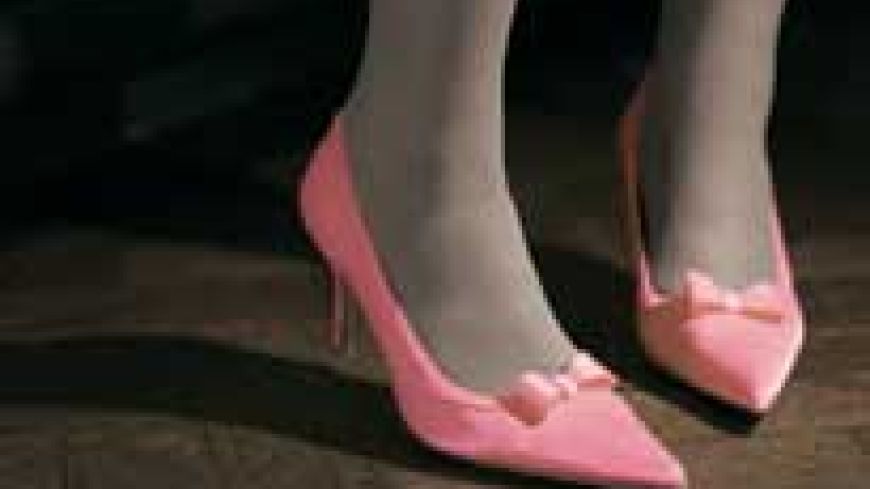
The waves crash on, drowning out the music
which marks the opening moments of Enda Walsh's The New Electric Ballroom. Two elderly
sisters play out the shag end of sibling rivalries and unspoken disappointed
affection
whilst reliving their teenage experiences of romance for the dubious
benefit of Ada (Catherine Walsh).
Breda (Rosaleen Linehan) and Clara (Val Lilley)
inhabit a world of their own partial (in both senses) fantasies, in which the
charms of the New Electric Ballroom of over forty years ago are as fresh as
Ada's baking. Into this maelstrom of pretence, Patsy (Mickel Murfi), the local
fishmonger increasingly intrudes, producing crisis and its uncomfortable resolution.
Any members of the audience familiar with either
Walsh's previous, and highly successful play The Walworth Farce, or Tom
Murphy's classic, Baligangaire, will recognise the ritual struggle to assert
the truth, the denial of same, and the ways in which characters become trapped
by repetition and re-avowal, and the ways we all use language to protect
ourselves and entrap others. Compared to Walsh's earlier work, however, this is
both a gentler yet in some ways more obvious re-working of these themes.
The cast are absolutely splendid, rising to
the many opportunities the script affords them to demonstrate their considerable
skills. And yet, and yet, one sometimes wishes Walsh could find ways out of the
rooms he so consistently imprisons his characters in. To suggest alternative
approaches to a genuinely creative mind is to court the deserved result of
hubris, but it would be interesting, after watching so many characters'
attempts to break out of their environments, to watch one trying to break in.
It's the seemingly inevitable fate of those
who create to become the prisoners of the expectations their work creates.
Experiment, far less escape, becomes difficult; for some impossible. Walsh has
skilfully delineated and described the ways in which we can become entrapped
and often entrap ourselves - perhaps what's now needed is some equally shrewd
looks at other aspects of the prisoner's dilemma.
Times: August 3-16 (times vary, see Fringe Programme)
Copyright Bill Dunlop 2008. Published on edinburghguide.com August 2008

